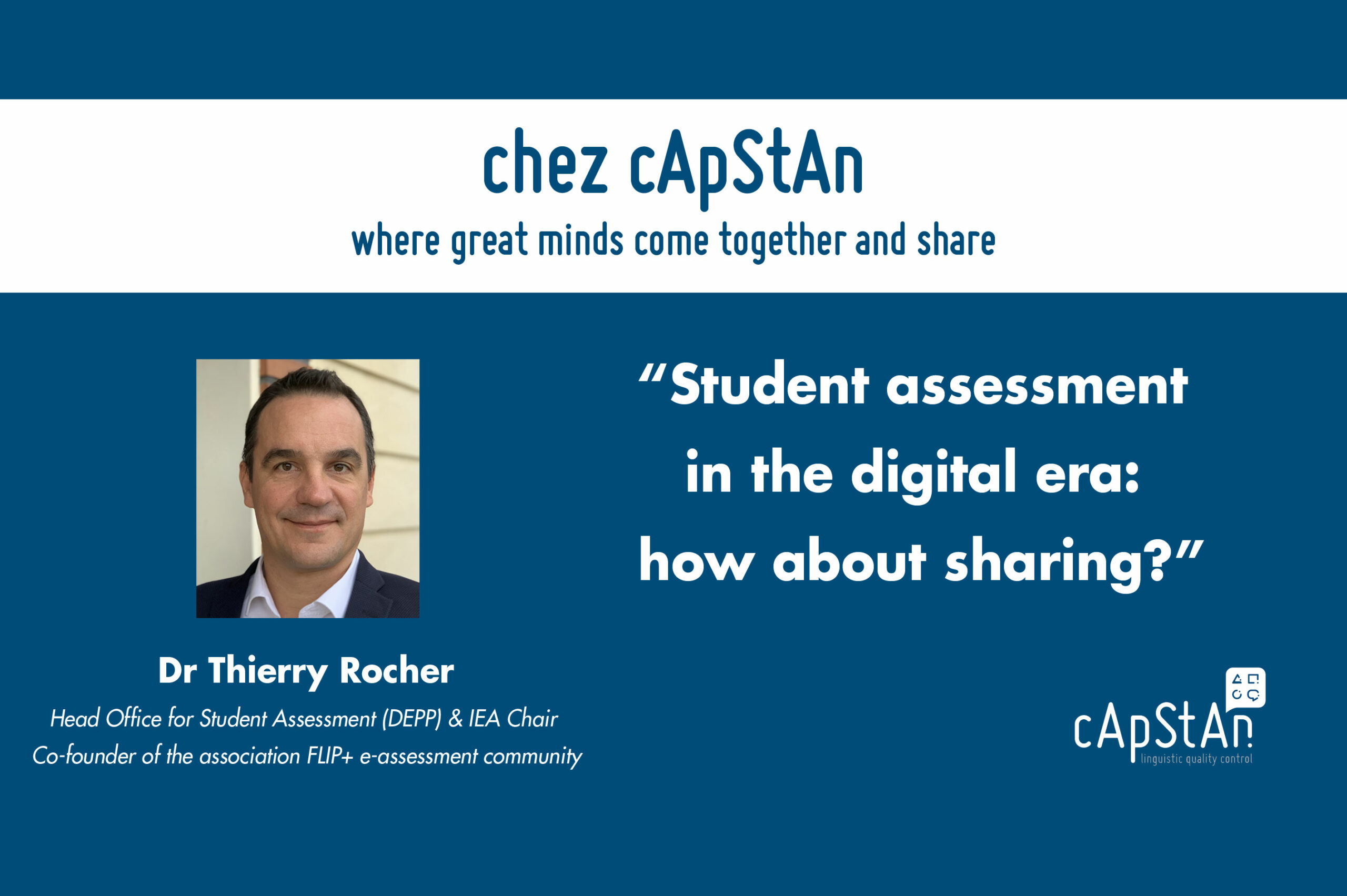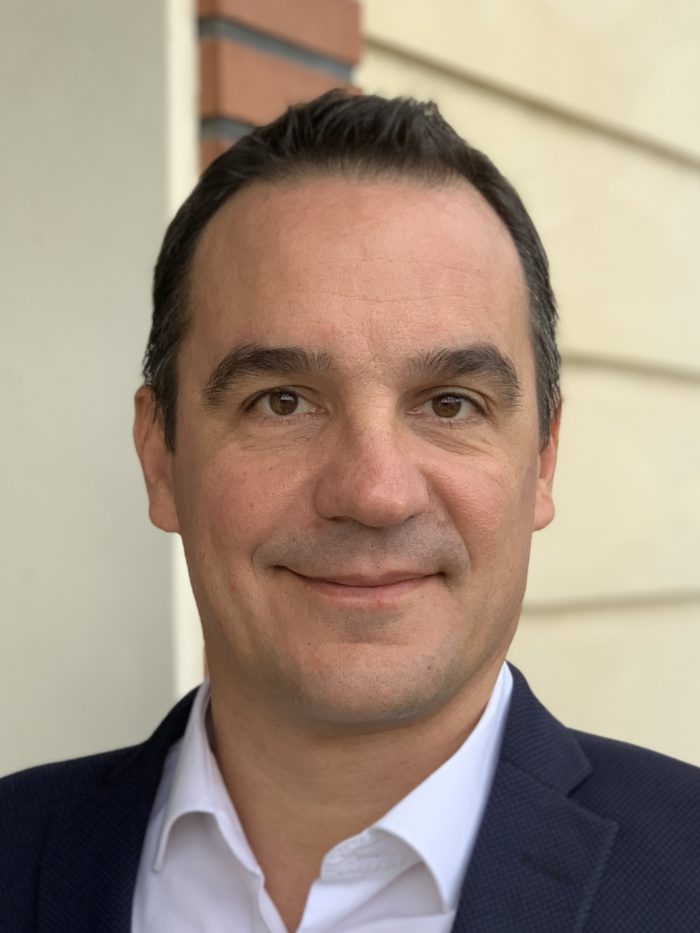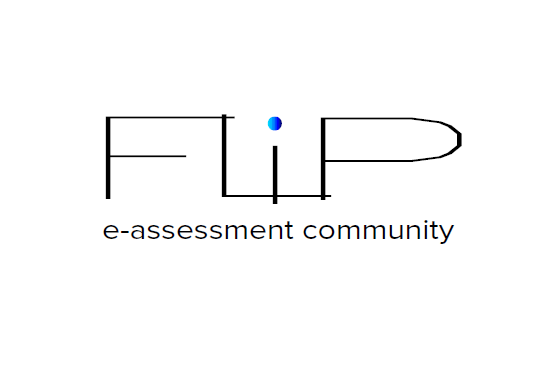
Student assessment in the digital era: how about sharing?
By Dr Thierry Rocher, Head Office for Student Assessment (DEPP), IEA Chair & Co-founding member of FLIP+
New technologies have undoubtedly taken a major role in the field of education, especially in this period of pandemic. We all see the vast opportunities offered by digital technology, but we are also aware of the immense challenges posed by the digital revolution.
Given this evolution, why do we separately take the path that we could take together?
It is this very simple idea that drives the FLIP+ e-assessment community, with a slogan that is: sharing!
At the root of this adventure, in 2017, lies a history of friendship between a few colleagues participating in the international assessment forums, namely the representatives from France, Luxembourg, Italy and Portugal, hence the acronym (F-L-I-P). Our discussions focused in particular on the digital transition of very large-scale assessment in France and Italy, as well as on innovative digital learning projects in Luxembourg and Portugal. The group was quickly joined by the Caed (Brazil) and the acronym FLIP gained its “+”.
As a small group, we share the same convictions on the positive role of student assessment: well-designed and well-used, assessment can be a powerful lever for transformation and a formidable tool for public action. It is this culture of assessment that we wish to promote and spread in order to improve the quality of teaching and learning.
In 2019, we founded the FLIP+ e-assessment association, urged by other international colleagues who believed in our ideas and the philosophy of sharing. In 2020, the association consists of 25 official members and we are very pleased to note how we all share the founding values of friendship, respect and sharing.
Within the FLIP+ e-assessment community, members can share within 3 areas: knowledge and experience, technology development and content.
Firstly, sharing knowledge and experience in e-assessment relates to experience accumulated during the transition from paper-based assessments to digital format, in a wide variety of national contexts and types of assessment (high/low stakes, monitoring or diagnostic purposes, census-based or sample-based, etc.). Members also share research on innovative topics such as process data analysis, User eXperience approaches, the assessment of 21st century skills, etc. These exchanges bring together people from different backgrounds: institutional, education professionals, researchers from many disciplines, statisticians, psychometricians, computer scientists, etc. Through this multidisciplinary approach, the association also values sharing competencies.
Secondly, sharing technology development, brings together a community of IT specialists in the highly-technical field of e-assessment. Various topics are addressed, including technology-enhanced items, student tools, delivery of e-assessment and integrated systems such as marking, reporting, analytics, etc. I wish here to emphasise on the importance of technological choices, which are not simply technical choices but choices that guide a particular policy. I am referring more specifically to open standards and open-source orientation. These two principles are clearly favoured in our community, in order to allow the sharing and mutualisation of solutions.
Thirdly, sharing content relates to the content of e-assessments. In 2019, we decided to launch an ambitious project: the construction of a world item library with the idea of developing a platform to enable the sharing of items (in paper or digital format) from different countries across the world.
The term item library – rather than item bank – is not neutral. The purpose of a library is above all to communicate available content to as many people as possible, spreading a culture – in this case, the culture of assessment I mentioned earlier.
Within the FLIP+ item library, members will be able to add items, to consult items, to borrow or even to use them, according to established rules determined by our community.
Here, I would like to thank the cApStAn team, and in particular Steve Dept, whom I have had the pleasure of knowing for many years now, for the contribution to this project of their translation expertise, as the multilingual contents will be translated into English in the platform.
In terms of content, we started off with mathematics, then we will extend our approach to other subjects. Community working groups have made progress in the development of the library, at conceptual, organisational and technological level, and we hope to come up with a first item library blueprint in the coming months.
These three areas of sharing form the backbone of the FLIP+ association, combining a pragmatic vision of sharing, through the pooling of strengths and skills, with a more philosophical vision, considering education, and therefore assessment, as a common good.
So, how about sharing? Let’s join the initiative: flip-plus.org

About Dr Thierry Rocher
Thierry Rocher is the Head of Office for Student Assessment at DEPP (Directorate for Statistics) at the Ministry of Education of France.
He is a co-founding member of the association FLIP+ e-assessment community and serves as treasurer.
He is the current Chair of IEA (International Association for the Evaluation of Educational Achievement) since January 2019. He was previously President of the Association for Educational Assessment-Europe (AEA-Europe) (2016-2018), and served as the French representative at the PISA Governing Board (2017-2018).
Dr Thierry Rocher is a statistician by training and holds a PhD in psychology, specializing in educational measurement and psychometrics.

About FLIP+
The FLIP+ e-assessment community is an association with the ambition of holding space for organisations and individuals involved in educational assessment to share knowledge and experiences, technology development and content related to e-assessment.
It is open to all non-profit entities whose goal is to build assessment solutions for the development of education worldwide. Membership is fundamentally institution-based but the association also associates individual members who are most often professional partners.
Our 3rd annual event, which took place online in June 2020, gathered over 100 participants from 50 institutions in 24 countries (https://flip-plus.org/latest-news).
To join the community: flip-plus.org/